Agronomic Benefits
Arcosa Specialty Materials offers a variety of soil supplements to replace missing nutrients, improve the quality of the soil, remove harmful elements like sodium or aluminum, and balance pH. These products come in bulk ag fines, or processed with proprietary additives during manufacturing to increase nutrient availability, improve application, and are able to be blended into specialty bulk blends by secondary manufacturers. These products are available through several different product offerings including Sucra-Min and Cal-CM+ Plus.
Our product line includes these soil amendments:
Calcium Sulfate – Gypsum Anhydrite and Gypsum Dihydrate
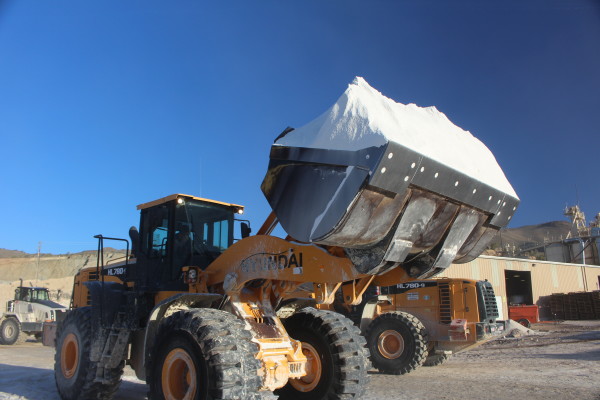

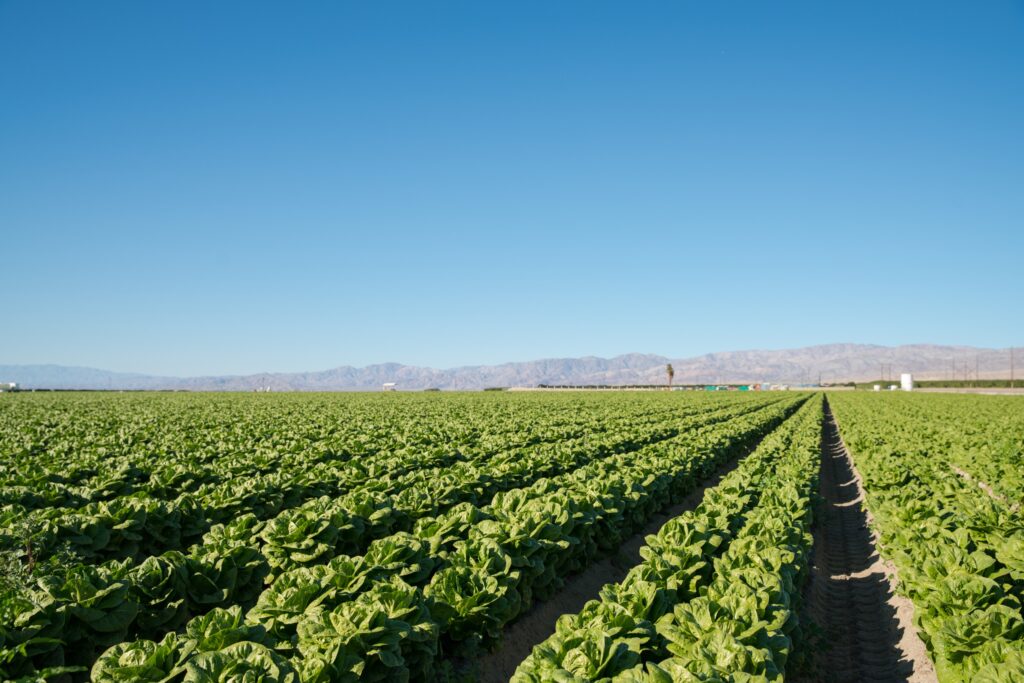


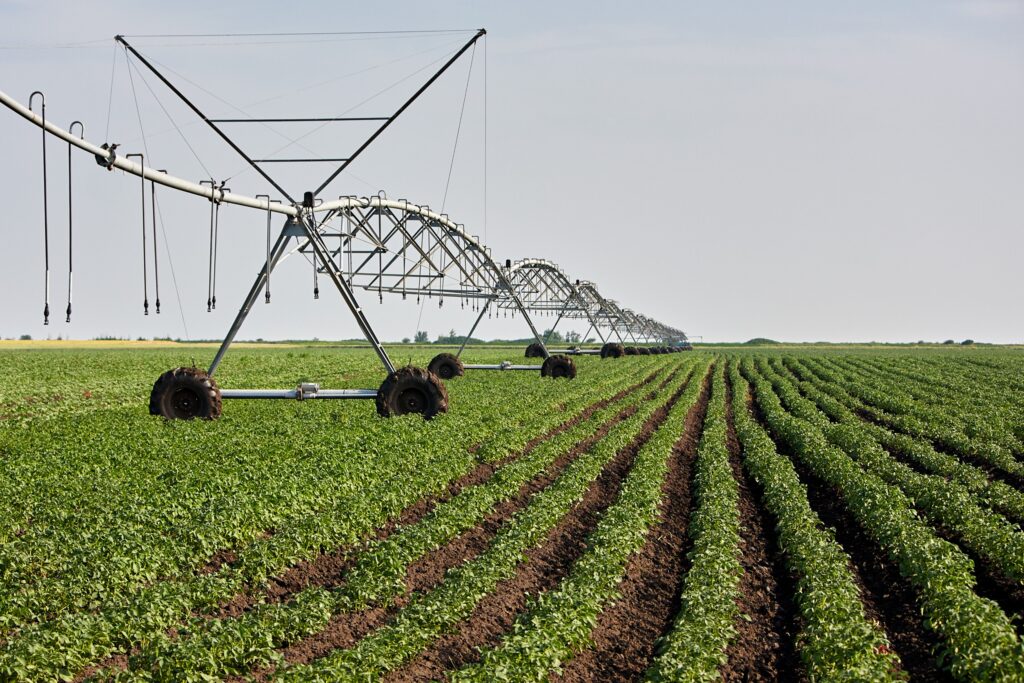
Supplies essential calcium for cellular strength and plant vigor. Performs as an amendment, conditioner and fertilizer.
Overall Soil Health – Enhances positive bacterial action and discourages plant diseases related to poor soil aeration. Improves, amends and reclaims soils high in destructive sodium and magnesium that is present in low quality irrigation water and soil.
Corrects Aluminum Toxicity – Gypsum binds with aluminum to move it deeper in the soil column, it and in turn, temporarily corrects pH levels. Aluminum toxicity can occur in soils that have large amounts of aluminum containing minerals. Excessive amounts of aluminum can inhibit root development and limit crop growth.
Improved Soil Structure – Gypsum and limestone provide calcium, which can flocculate clay soils and reduce the swelling of smectite and open pore spaces improving the penetration of water, air, and roots into the soil.
Increased Water Infiltration – As the soil structure improves, the water infiltration rate and hydraulic conductivity of the soil increases. May make 25%-96% more water available to plants depending on the soil type and soil management practices while simultaneously improving drainage through particle flocculation.
Crust Prevention – Helps improve soil structure and decreases compaction, providing optimum air and water availability for plant root growth.Using gypsum and limestone to increase the electrolyte concentration of the irrigation water can prevent depositional crusts on soil surfaces, which can adversely affect water infiltration rates and seed emergence.
Better Moisture Retention – Gypsum and limestone help the soil take in and retain moisture, improving the soil’s water-use efficiency, which is especially critical in times of drought.
Fertilization – Gypsum supplies bio-available calcium and sulfur, elements vital to proper plant growth and development.
Enhanced Nutrient Absorption – The calcium supplied in gypsum and limestone is essential to the biochemical mechanisms by which most nutrients are absorbed. It regulates the balance of micronutrients in grass plants and optimizes the calcium to magnesium ratio in soils.
Environmentally Safe – Lawn and garden gypsum and limestone are inert and non-toxic.
Irrigation Effect – Controlling soil salinity with appropriate water management is especially important because soils with high sodium content perform poorly compared to calcium rich soils. Many irrigation sources contain excess salt, which in turn increase the salinity of soils.
Soluble Application – Soil performance can be improved by including gypsum with irrigation water because the calcium found in those minerals compete with other applications for binding sites in the soil.
Manure Treatment – Gypsum can be mixed with animal waste to combine with ammonium (NH4) to form ammonium sulfate to prevent loss of nitrogen and thus reduce odors. Ammonium sulfate is odor free.
Limestone – Calcium Carbonate
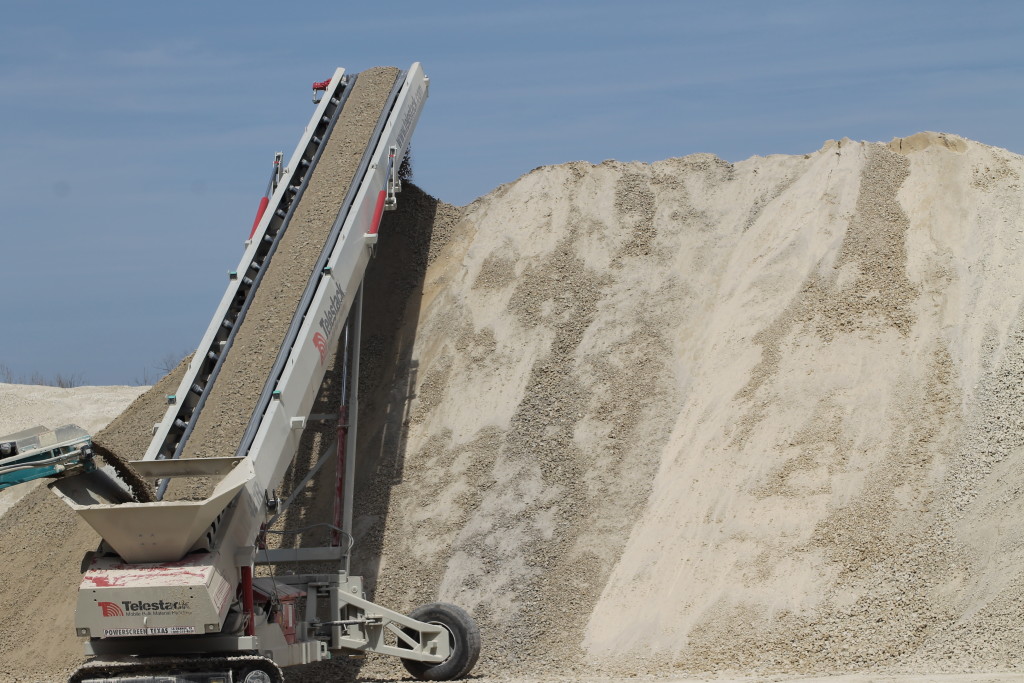
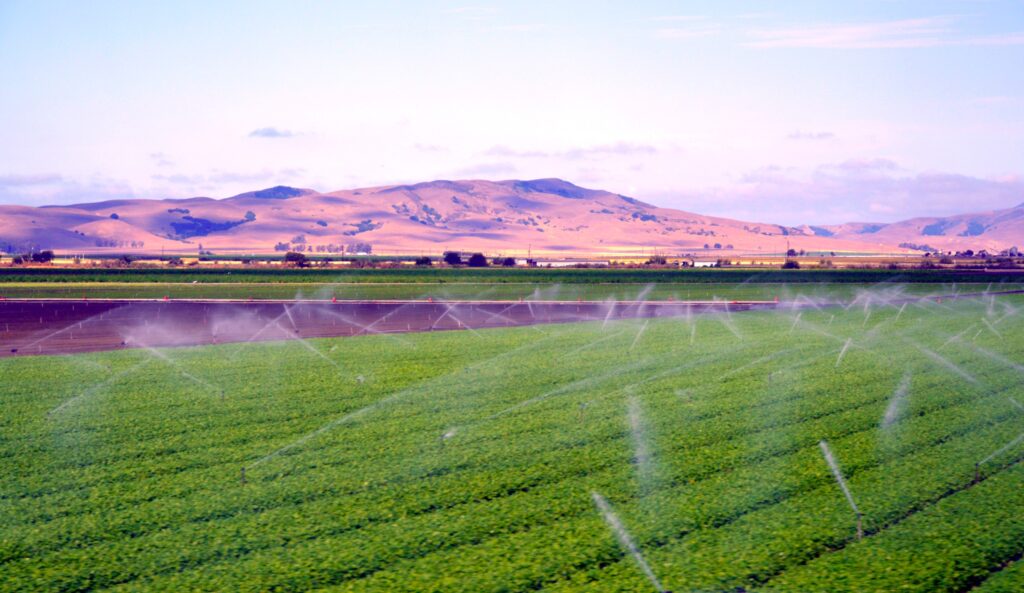

Limestone is the foundation of any soil maintenance program.
Most plants produce best in a neutral pH range. This product increases pH on acidic soils by replacing hydrogen and aluminum with calcium, which allows plants to utilize other nutrients more efficiently. Limestone corrects soil acidity, increasing essential nutrient availability. Limestone also loosens clay and compacted soils by flocculating clay particles.
Benefits of Limestone
- Adjusts low pH levels.
- Neutralizes acidic soils, improving solubility of many essential plant nutrients influenced by soil pH.
- Features Rapid-Releases technology. The finely ground, uniform particle size is more rapidly released into the soil, which increases the availability of nutrients.
- Causes a reduction in aluminum, which may be toxic and restrict root and associated top growth. Restricted root growth also reduces drought tolerance.
- Allows for more efficient use of fertilizer-supplied phosphorus (P). Aluminum, particularly at a low pH, is chemically active and combines with fertilizer phosphorus, causing it to become insoluble.
- Reduces leaching of potassium. On the soil’s exchange complex there are a limited number of sites that can hold nutrients such as potassium. When these sites are occupied by strongly attached aluminum (low pH), any potassium added in fertilizer is more susceptible to leaching.
- Supplies calcium, an essential plant nutrient.
Dolomitic Limestone
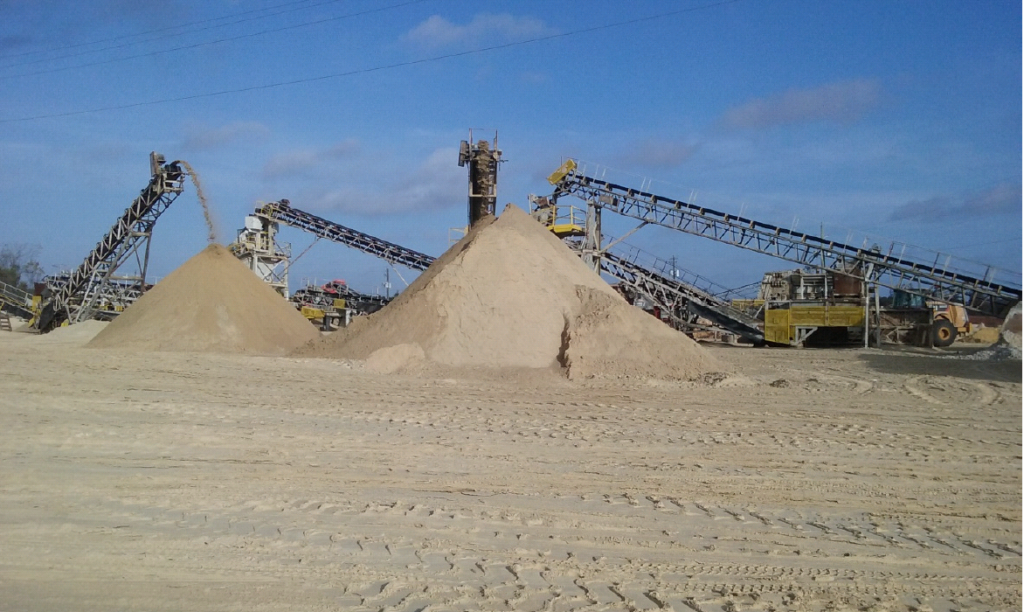
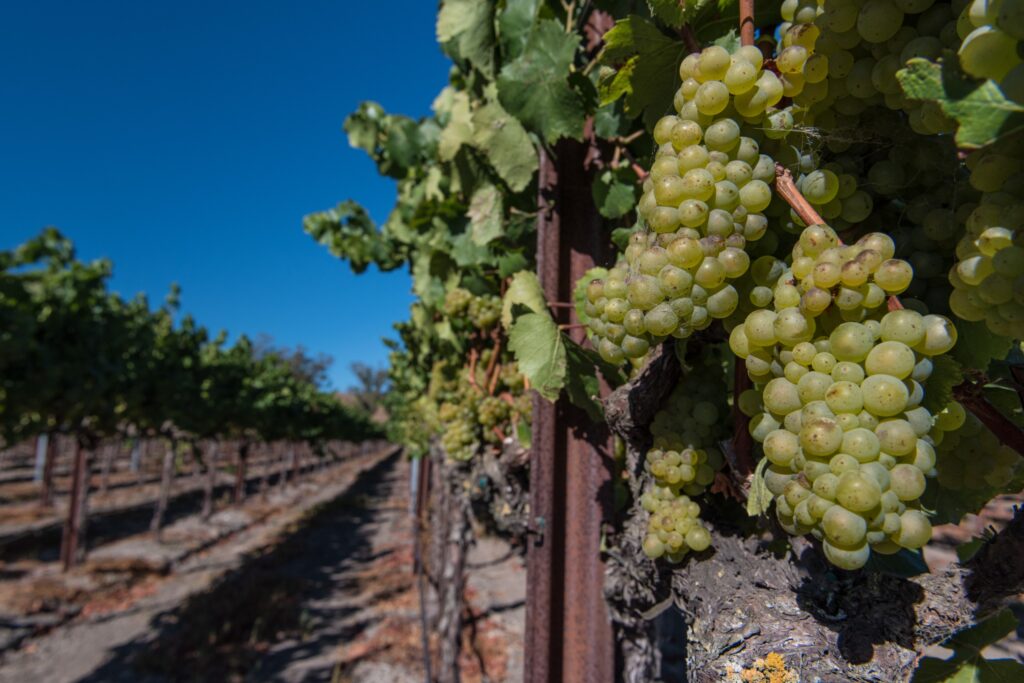

Dolomitic lime helps with both pH levels and magnesium deficiency.
In addition to containing calcium carbonate, dolomitic lime also contains a mixture of magnesium carbonate. Typically, the mineral is comprised of approximately 50% calcium carbonate and 40% magnesium carbonate with the remainder being other materials.
Because both calcium carbonate and magnesium carbonate are basic, the idea is that both can work together to improve soil conditions while also introducing valuable nutrients into the earth that are essential to plants.
Although both agricultural lime and dolomitic lime are able to successfully raise the pH levels of acidic soil, dolomitic lime is generally chosen for fields, gardens and turf where the soil is particularly magnesium deficient or in pastures that have a history of grass tetany to raise forage magnesium levels.
Soil is considered to be magnesium deficient when there is at least a 6:1 calcium to magnesium ratio, meaning that there is approximately 30%-40% more calcium content. When this is the case, dolomitic lime can quickly restore the mineral balance in the earth.
Iron (Fe)
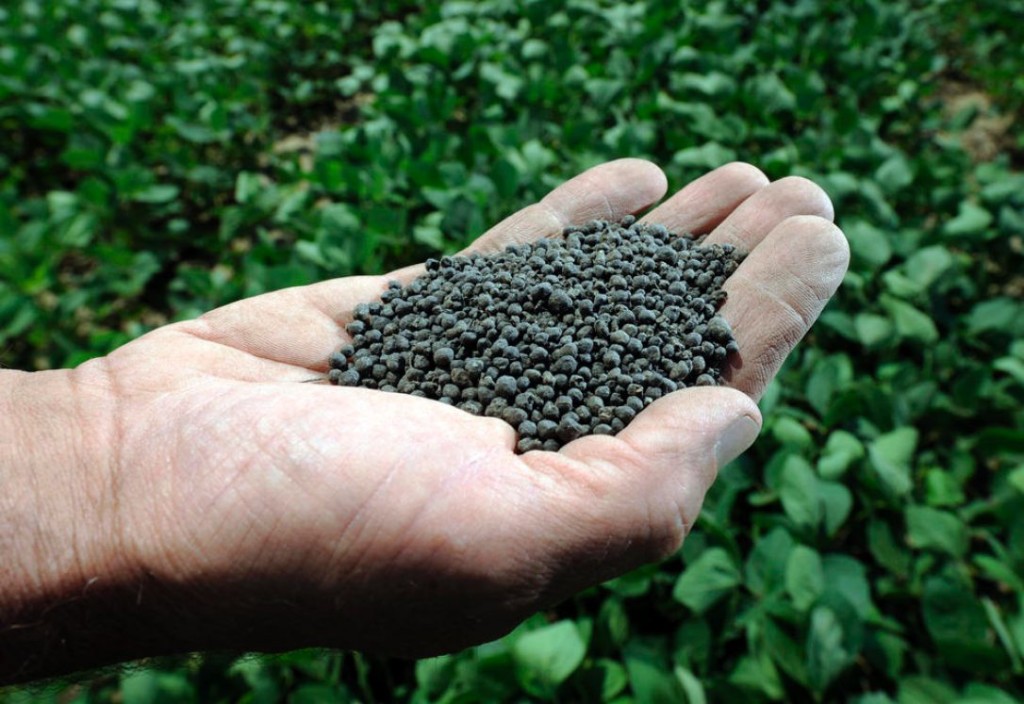

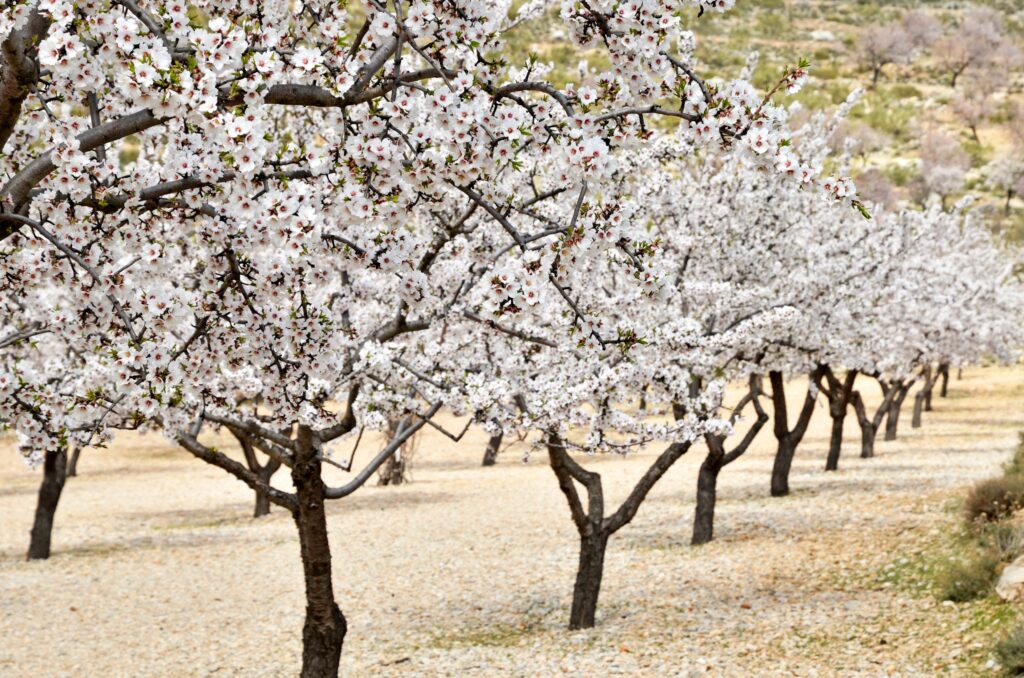

Iron is a micronutrient essential for plant growth.
Iron is part of wide range of agricultural micronutrients, which is why it’s important to understand genuine benefits of using them in farming activities. Chlorosis treatment remains to be the main benefit derived from agricultural use of iron complexes as they boost chlorophyll production in leaves.
Horticultural Benefit
As agricultural micronutrient, iron complexes provide beneficial support to horticultural process by being a “sequestered iron”. Complexed-iron micronutrients used as plant tonics are recommended for enhancing ornamental horticulture. Such measures can prevent lime-induced chlorosis, thereby keeping quality of soil intact.
Eradication of Iron Deficiency in Crops
Agricultural professionals have been dealing with discrepancies in terms of crop quality, especially the iron quotient in them. After trials of several micronutrient and additives, iron complexes are being regarded optimal for correcting iron deficiency in crops. Irregular medium pH absorption renders crops deficient of iron. Increasing fertilizer application may resolve this to some extent. But, using complexed-iron micronutrients can be a key solution to intensify iron levels in soil. As a result, plants and crops will be cultivated on ample supply of iron, thereby eradicating the risks of deficiency.
Benefits of Iron
- Contains 50% Iron, which promotes deep green color in turf and improved root structure.
- Essential in maintaining good levels of chlorophyll, which promotes optimum plant growth and reproduction.
- Improves soil structure, making water more available to plants.
- Promotes strong plant cell wall structure for better transport and retention of other elements to the plant.
- Promotes the development and activity of enzymes and vitamins.
- Helps in chlorophyll formation.
- Improves root growth and seed production.
- Helps with vigorous plant growth and resistance to cold.
Magnesium (Mg)
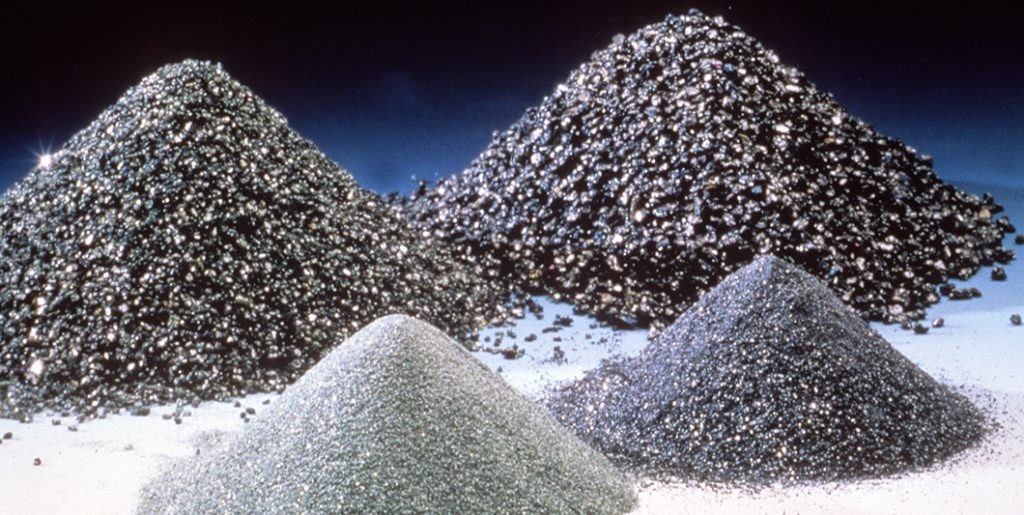


Magnesium is the central core of the chlorophyll molecule in plant tissue.
The Role of Magnesium
Magnesium is the central core of the chlorophyll molecule in plant tissue. If magnesium is deficient, the shortage of chlorophyll results in poor and stunted plant growth. Magnesium also helps to activate specific enzyme systems. Enzymes are complex substances that build, modify, or break down compounds as part of a plant’s normal metabolism.
Although magnesium is an essential element for plant growth, its use in a fertilizer program receives only minor emphasis in most areas. If magnesium is limited in the diet, animals can develop grass tetany. Therefore, some special consideration is given to the magnesium status of forage crops.
Magnesium in the Soil
Magnesium is abundant in the earth’s crust. It is found in a wide variety of minerals. Magnesium becomes available for plant use as these minerals weather or break down. For the acid soils of the east and southeastern US, the addition of dolomitic limestone in the crop rotation, is a good source of supplemental magnesium for turf and crop growth.
Magnesium is held on the surface of clay and organic matter particles. Although this exchangeable form of magnesium is available to plants, this nutrient will not readily leach from soils.
Manganese (Mn)
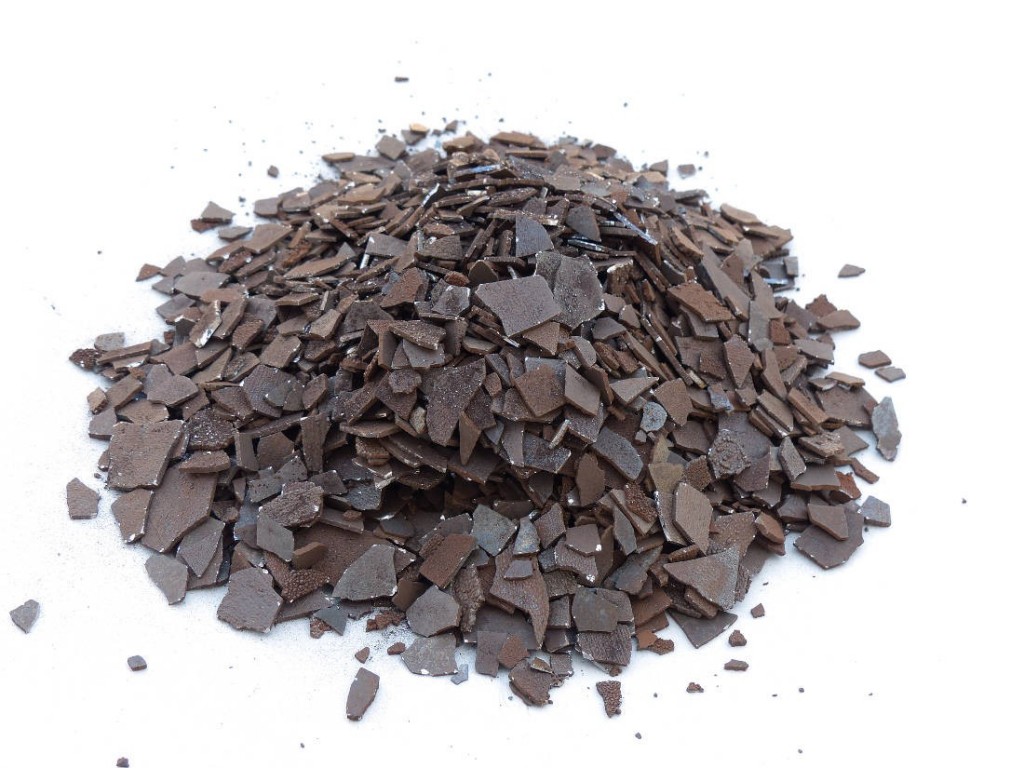

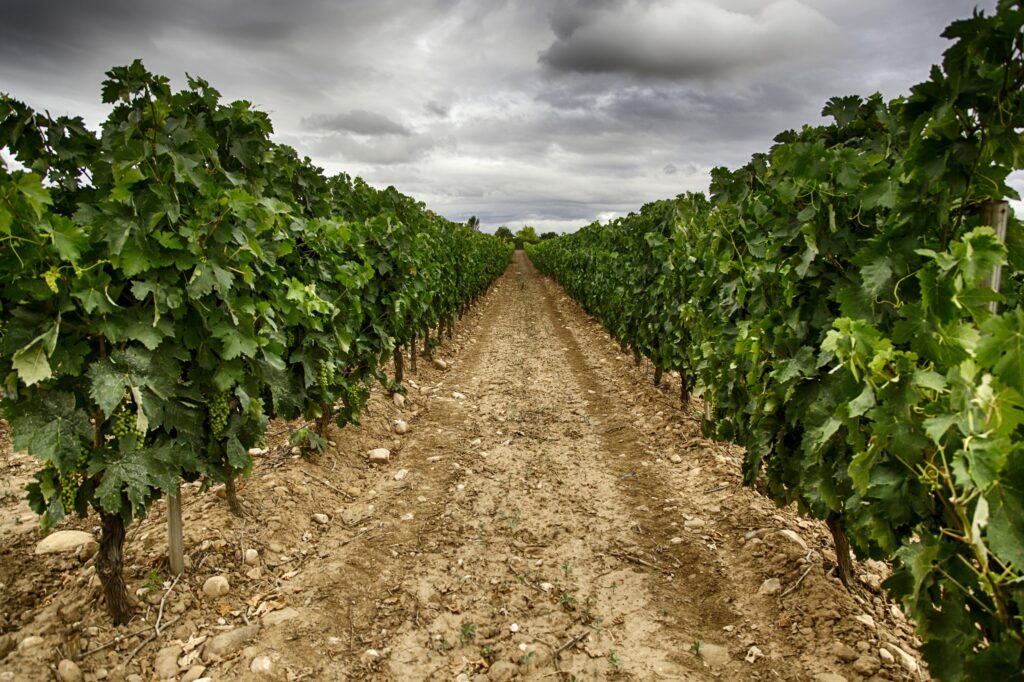
Manganese is an essential plant mineral nutrient, playing a key role in several physiological processes, particularly photosynthesis.
Manganese deficiency is a widespread problem, most often occurring in sandy soils, organic soils with a pH above 6 and heavily weathered, tropical soils. It is typically worsened by cool and wet conditions.
Specific Benefits
Numerous crop species have been reported to show high susceptibility to manganese deficiency in soils, or a very positive response to manganese fertilization, including cereal crops (wheat, barley and oats), legumes (common beans, peas and soybean), stone fruits (apples, cherries and peaches), palm crops, citrus, potatoes, sugar beets and canola, among others. The impact of manganese deficiencies on these crops includes reduced dry matter production and yield, weaker structural resistance against pathogens and a reduced tolerance to drought and heat stress.
Manganese Deficiency
Manganese has a relatively low phloem mobility in plants, and as a result, typical leaf symptoms of manganese deficiency first develop in younger leaves. The critical concentration for manganese deficiency is generally below 20 ppm dry weight in fully expanded, young leaves. In the case of dicots, manganese deficiency first results in pale mottled leaves, followed by typical interveinal chlorosis.
Under severe manganese deficiency dicots may also develop a number of brownish spots. In cereals, manganese deficiency can cause pale green or yellow patches in younger leaves. This condition is known as gray speck, and is characterized by necrotic spots that form in older leaves
Potassium (K)
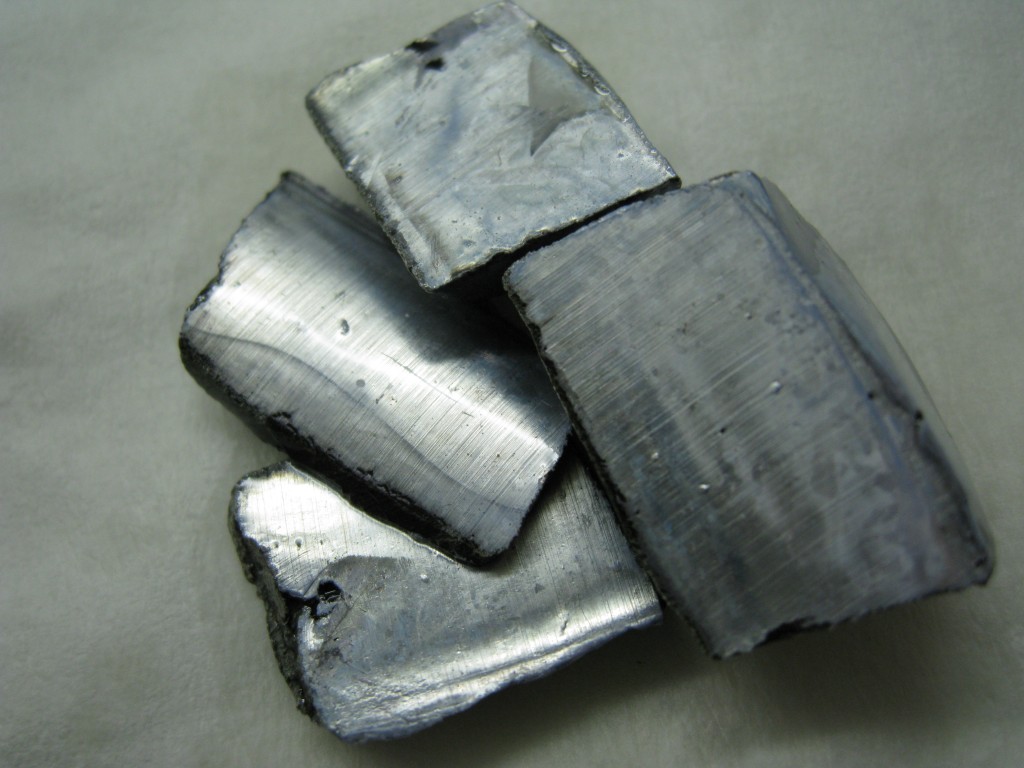
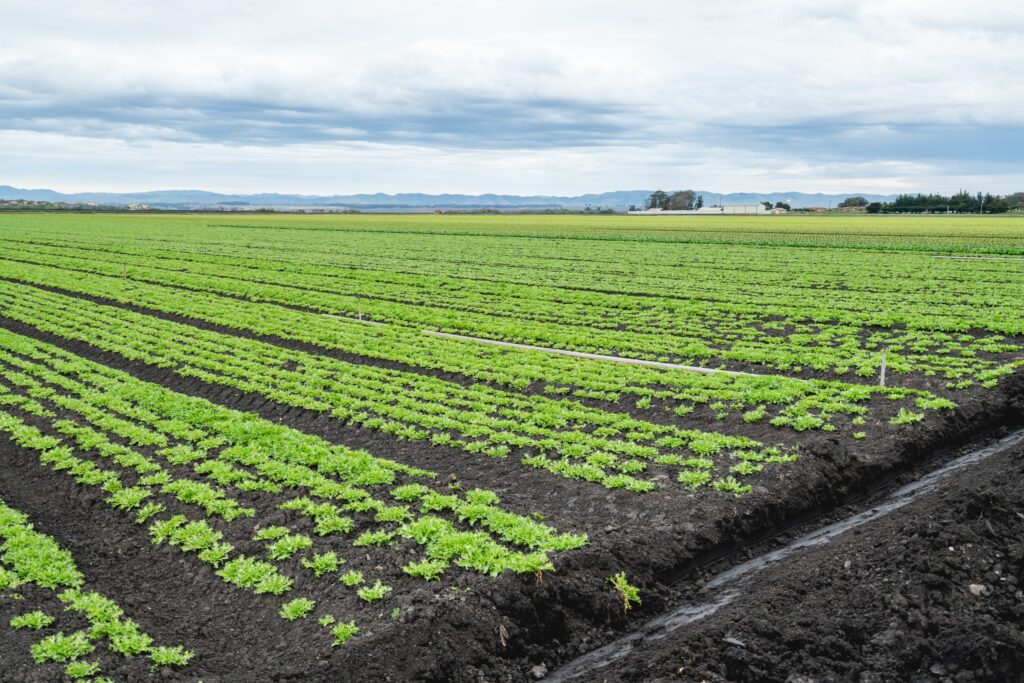

Potassium is an essential nutrient for plant growth and is classified as a macronutrient.
Role in Plant Growth
Potassium is an essential nutrient for plant growth and is classified as a macronutrient due to large quantities of potassium being taken up by plants during their life cycle. When soils are deficient in potassium, it must be supplied in a fertilizer program. Potassium is associated with movement of water, nutrients, and carbohydrates in plant tissue. Potassium is involved with enzyme activation within the plant which affects protein, starch and adenosine triphosphate (ATP) production. The production of (ATP) can regulate the rate of photosynthesis.
Potassium also helps to regulate the opening and closing of the stomata which regulates the exchange of water vapor, oxygen, and carbon dioxide. If potassium is deficient or not supplied in adequate amounts, growth is stunted and yield is reduced. For perennial crops such as alfalfa, potassium has been shown to play a role in stand persistence through the winter.
Other Roles of Potassium Include:
- Increased root growth and improves drought resistance
- Maintains turgor; reduces water loss and wilting
- Aids in photosynthesis and food formation
- Reduces respiration, preventing energy losses
- Enhances translocation of sugars and starch
- Produces grain rich in starch
- Increases protein content of plants
- Builds cellulose and reduces lodging
- Helps retard crop diseases
Zinc (Zn)
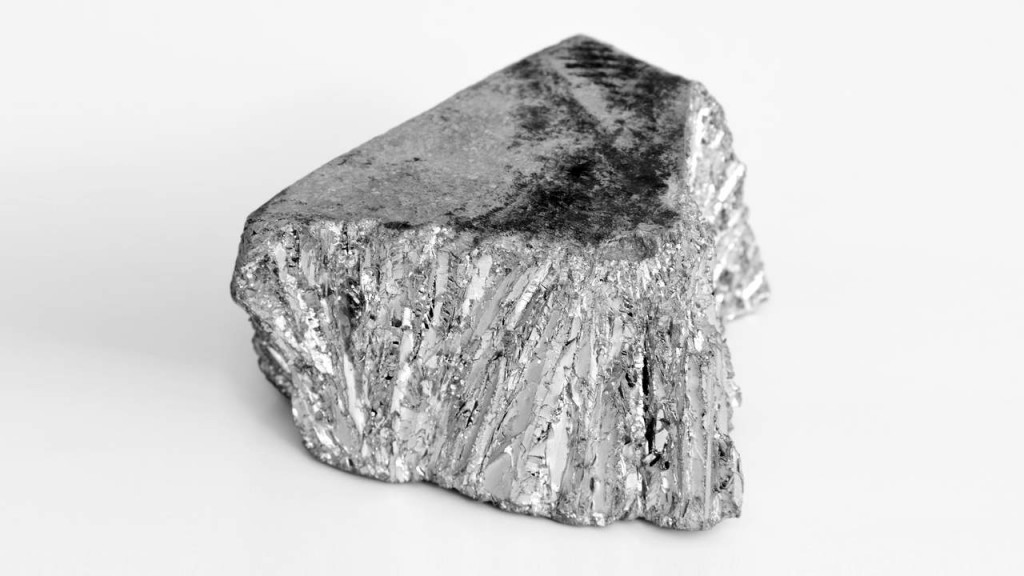


Zinc is an important component of various enzymes that are responsible for driving many metabolic reactions in all crops.
Zinc is an essential micronutrient for plant life. In soils without adequate levels of this micronutrient, addition of zinc fertilizers is needed for crop production. Zinc is a recommended micronutrient in fertilizer programs for production of corn, sweet corn, and edible beans. Several research projects have focused on the use of this nutrient, and much of the following information is based on the results of that research.
Natural Sources of Zinc
Zinc exits naturally in rocks. The amount of zinc present in the soil depends on the parent materials of that soil. Sandy and highly leached acid soils generally have low plant available zinc. Mineral soils with low soil organic matter also exhibit zinc deficiency. In contrast, soils originating from igneous rocks are higher in zinc. Plants take up zinc as the divalent ionic form (Zn2+) and chelated-zinc.
The Role of Zinc in the Plant
Zinc is an important component of various enzymes that are responsible for driving many metabolic reactions in all crops. Growth and development would stop if specific enzymes were not present in plant tissue. Carbohydrate, protein, and chlorophyll formation is significantly reduced in zinc-deficient plants. Therefore, a constant and continuous supply of zinc is needed for optimum growth and maximum yield.
For More Information
For more information or to purchase a product, please contact:
Oklahoma, Texas panhandle & Kansas
Chris Shetley
Sales Representative
(405) 366-9500 (Office)
(405) 222-8599 (Cell)
Chris.Shetley@Arcosa.com
Washington, Oregon, Nevada, California and surrounding area
Brody A. Oakley
Sales Director
(405) 612-4756
Brody.Oakley@Arcosa.com
Prilled Products for Agricultural Applications
Sales Representative
Gary Gilliland
(480) 759-4148 (Office)
(602) 618-1603 (Cell)
gmigary@cox.net
Arcosa Specialty Materials offers a variety of soil supplements to replace missing nutrients, improve the quality of the soil, remove harmful elements like sodium or aluminum, and balance pH.